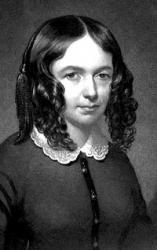Planning worship?
Check out our sister site, ZeteoSearch.org,
for 20+ additional resources related to your search.
- |
User Links
Person Results
Susannah Harrison
1752 - 1784 Person Name: Susanna Harrison Author of "How Oft Doth Beauty Lead To Sin" in The Cyber Hymnal Harrison, Susanna, invalided from her work as a domestic servant at the age of 20, published Songs in the Night, 1780. This included 133 hymns, and passed through ten editions. She is known by "Begone, my worldly cares, away," and "O happy souls that love the Lord." Born in 1752 and died Aug. 3, 1784.
--John Julian, Dictionary of Hymnology, New Supplement (1907)
================================
Harrison, Susanna. (1752--August 3, 1784, Ipswich, England). The preface to the first edition of her collected hymns, Songs in the night, 1780, states that she was "a very obscure young woman, and quite destitute of the advantages of education, as well as under great bodily affliction. Her father dying when she was young, and leaving a large family unprovided for, she went out to service at sixteen years of age."
In August 1722, she became ill, probably with tuberculosis, and returned to her mother's home. She taught herself to write and in her remaining years she wrote 142 hymns which, with a few meditations, were published as Songs in the night by an anonymous editor, perhaps her rector. So sincere yet vivid is the expression of her faith as she faced certain death that by 1847 there had been eleven editions printed in England and seven additional ones in America.
Individual hymns remained popular in America during much of the nineteenth century due to the constant preoccupation with death in both urban and frontier life, reflected in the large sections of funeral hymns in most hymnals.
--Leonard Ellinwood, DNAH Archives
Susannah Harrison
Eliza Scudder
1821 - 1896 Author of "Thou Grace Divine, Encircling All" in The Cyber Hymnal Scudder, Eliza , niece of Dr. E. H. Sears, (q.v.), was born in Boston, U.S.A., Nov. 14,1821, and now (1888) lives in Salem, Massachusetts. Formerly an Unitarian, she some time ago joined the Protestant Episcopal Church. Her hymns in common use are:—
1. From past regret and present[faithlessness] feebleness . Repentance. In the Quiet Hours, Boston, 1875.
2. I cannot find Thee! Still on restless pinion . Seeking after God. Appeared in Longfellow and Johnson's Unitarian Hymns of the Spirit, 1864.
3. In Thee my powers and treasures live. Faith.
4. Life of our life, and light of all our seeing! Prayer. In the Boston Quiet Hours, 1875.
5. The day is done; the weary day of thought and toil is past. Evening. In Sermons and Songs of the Christian Life, by E. H. Sears, Boston, 2nd ed.,1878, p. 296, entitled "Vesper Hymn," and dated "October, 1874." This is possibly her finest hymn.
6. Thou grace divine, encircling all . Divine Grace. Appeared in Dr. E. H. Sears's Pictures of the Olden Time, as shown in the Fortunes of a Family of Pilgrims, 1857. It was written in 1852, and included in the Boston Hymns of the Spirit, 1864. It has sometimes been taken as "An Ancient Catholic Hymn" (Universalist's Psalms & Hymns 1865), but in error.
7. Thou long disowned, reviled, oppresst. The Spirit of Truth. In the Boston Hymns of the Spirit, 1864.
Of these hymns, Nos. 2, 6, and 7 are in Dr. Martineau's Hymns, 1873. Some of Miss Scudder's poetical pieces appeared in Dr. Sears's Monthly Religious Magazine. Her Hymns and Sonnets, by E. S., were published by Lockwood, Brooks & Co., Boston, 1880. From this her hymn "Thou hast gone up again" (Ascension), is taken. [Rev. F. M. Bird, M.A.]
-- John Julian, Dictionary of Hymnology (1907)
====================
Scudder, Eliza, pp. 1035, L, 1589, i. Miss Scudder died in 1896. Her Hymns & Sonnets, with biographical notes, &c, by Horace E. Scudder, was published by Houghton & Mifflin, 1897. In The Pilgrim Hymnal, 1904, the hymn," Thou Life within my life," begins with st. ii. of "From past regret and present [faithlessness] feebleness," p. 1035, i. 1), which was written in Feb. 1871. Another of Miss Scudder's hymns is “ Let whosoever will enquire" (New Heaven), from which "My God, I rather look to Thee," in Horder's Worship Song, 1905, is taken.
--John Julian, Dictionary of Hymnology, New Supplement (1907)
Eliza Scudder
Elizabeth Barrett Browning

1809 - 1861 Person Name: Elizabeth B. Browning Author of "Since Without Thee We Do No Good" in The Cyber Hymnal Browning, Elizabeth, née Barrett, daughter of Mr. Barrett, an English country gentleman, and wife of Robert Browning, the poet, was born in London 1809, and died at Florence in 1861. As a poetess she stands at the head of English female writers, and her secular works are well known. Sacred pieces from her works are in common use in America. They include:
1. God, named Love, whose fount Thou art. Love.
2. How high Thou art! Our songs can own. Divine Perfection.
3. Of all the thought of God, that are. Death.
4. What would we give to our beloved? Pt. ii. of No. 3.
5. When Jesus' friend had ceased to be. Friendship. Based on the death of Lazarus.
These hymns are in Beecher's Plymouth Collection 1855; Hedge and Huntington's Hymns for the Church of Christ, Boston, U.S., 1853, &c.
-- John Julian, Dictionary of Hymnology (1907)
=====================
Browning, Elizabeth, née Barrett, p. 187, i. We find that the usually accepted birth-place (London) of Mrs. Browning must be corrected. She was born at Coxhoe Hall, Durham, March 6, 1806, and baptised as Eliza¬beth Barrett Moulton Barrett at Kelloe Church, Durham, Feb. 10, 1808. [Rev. James Mearns. M.A.]
--John Julian, Dictionary of Hymnology, New Supplement (1907)
Elizabeth Barrett Browning


 My Starred Hymns
My Starred Hymns


